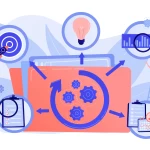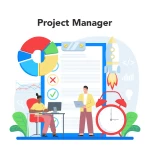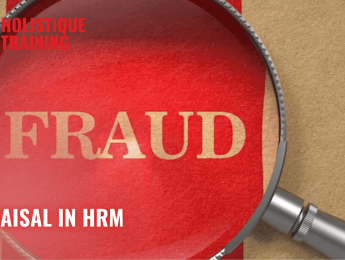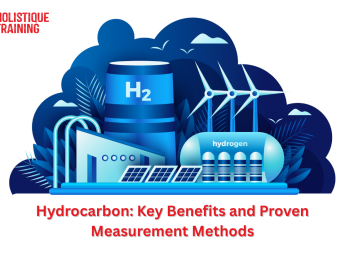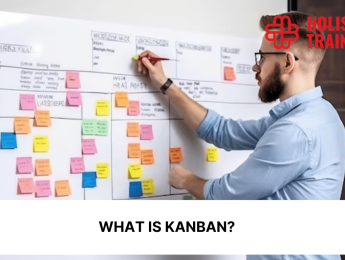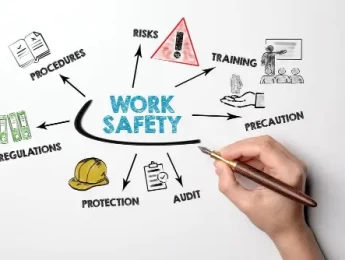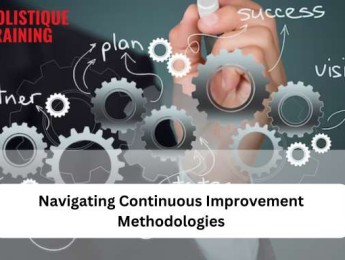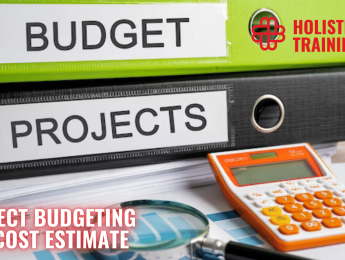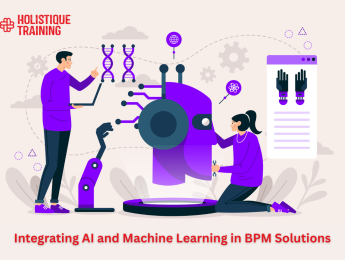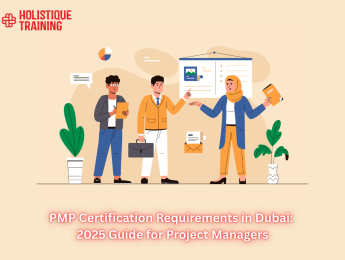- Table of Contents
- Introduction
- What Does a Project Management Professional Do?
- What Is PMP Certification?
- Benefits of Earning the PMP Certification
- Enhanced Project Management Skills
- Global Recognition and Credibility
- Access to a Global Network
- Increased Career Opportunities
- Higher Earning Potential
- Improved Project Success Rates
- Leadership and Communication Skills Development
- Continuous Learning and Professional Development
- Qualifications/Requirements for Applying
- Educational Background
- Four-Year Degree
- 35 Contact Hours
- How to Prepare for the PMP Certification Exam
- Review the PMBOK Guide
- Choose a Study Plan
- Access PMP Exam Prep Materials
- Create a Study Schedule
- Practice, Practice, Practice
- Engage in Interactive Learning
- Understand the PMI Code of Ethics and Professional Conduct
- Simulate Exam Conditions
- Stay Healthy and Well-Rested
- Seek Support and Clarify Doubts
- Stay Updated and Adaptive
- Maintaining the Certification
- Earn Professional Development Units (PDUs)
- Record and Report PDUs
- Stay Informed and Continuously Learn
- Engage in Professional Communities
- Pursue Advanced Certifications
- Plan Your Professional Development
- Audit Preparedness
- Is the PMP Certification Right for You?
- 1. Experience Level
- 2. Career Advancement
- 3. Commitment to Professional Development
- 4. Interest in Standardised Practices
- 5. Global Recognition
- 6. Financial Investment
- 7. Industry Relevance
- 8. Time Management
- 9. Long-Term Career Planning
- 10. Passion for Project Management
- Conclusion
- Enhance Your PMP Journey with Holistique Training
Introduction
Project management is the backbone of successful businesses and organisations. It ensures that complex tasks are completed efficiently and within budget, delivering valuable results. To achieve excellence in project management, many professionals choose to pursue the Project Management Professional (PMP) certification. In this comprehensive guide, we will explore the world of PMP, including what PMPs do, the certification process, its benefits, prerequisites, exam preparation, and maintenance requirements. By the end, you'll have a clear understanding of whether the PMP certification is the right path for you.
What Does a Project Management Professional Do?
Before diving into the details of PMP certification, it's essential to understand the role of a Project Management Professional. PMPs are skilled individuals responsible for orchestrating projects from initiation to closure. They are the conductors of the project orchestra, ensuring every aspect runs smoothly and efficiently.
PMPs oversee project planning, execution, and control. They're adept at managing resources, time, and budgets. Communication and leadership are vital skills, as they coordinate with various stakeholders, manage project teams, and mitigate risks. The demand for these skilled professionals is on a steady rise, as indicated by the recent talent gap analysis commissioned by PMI and conducted by Anderson Economic Group, as cited by UAB. Projections indicate a remarkable 33% growth in the project management sector over the next eight years, resulting in the creation of almost 22 million new job opportunities by 2027.
These professionals excel in the following areas:
Project Initiation
PMPs work closely with stakeholders to define the project's goals, objectives, and constraints.
Project Planning
They develop comprehensive project plans, outlining tasks, timelines, resource allocation, and risk management strategies.
Project Execution
PMPs put plans into action, ensuring tasks are completed as scheduled and within budget.
Project Monitoring and Control
Continuous assessment of project performance and adaptation to changes is a core responsibility. They ensure that the project stays on course.
Project Closure
Once the project goals are achieved, PMPs oversee the formal closure of the project, ensuring that all deliverables are met and stakeholders are satisfied.

What Is PMP Certification?
The Project Management Professional (PMP) certification is a globally recognised credential awarded by the Project Management Institute (PMI). It acknowledges the expertise and experience of project management professionals and demonstrates their commitment to best practices in the field.
PMP certification validates your knowledge and skills in project management, making you a valuable asset to any organisation. The certification is not specific to any industry, which means PMPs can work in a wide range of sectors, from IT and healthcare to construction and finance.
Benefits of Earning the PMP Certification
The journey to PMP certification offers a plethora of benefits, both personally and professionally. Here are some of the key advantages:
Enhanced Project Management Skills
Pursuing PMP certification requires an in-depth understanding of project management principles, tools, and techniques. As you prepare for the exam, you will delve into various aspects of project planning, execution, monitoring, and closure. This intensive study enhances your project management skills, making you more proficient in handling complex projects effectively and efficiently. The knowledge gained is not just for the exam but becomes a valuable asset throughout your career.
Global Recognition and Credibility
The PMP certification is globally recognised and respected in the industry. Regardless of where you work, PMP certification signifies a high level of competence and expertise in project management. It provides instant credibility and sets you apart from non-certified peers, making you a sought-after professional in the competitive job market.
Access to a Global Network
Achieving PMP certification grants you membership in an exclusive community of project management professionals worldwide. This network offers opportunities for collaboration, mentorship, and knowledge exchange. Engaging with fellow PMPs allows you to learn from their experiences, gain insights into different industries, and stay updated on the latest trends and best practices in project management.
Increased Career Opportunities
PMP certification opens the door to a wide array of career opportunities. Many organisations prefer or require PMP-certified professionals for leadership roles in project management. Whether you aspire to be a project manager, programme manager, portfolio manager, or consultant, the certification significantly expands your career prospects and positions you for roles with greater responsibilities and challenges.
Higher Earning Potential
PMP certification is often associated with higher earning potential. According to surveys conducted by PMI, certified project managers tend to earn higher salaries than their non-certified counterparts. The certification showcases your expertise and dedication to the profession, making you eligible for better-paying positions and lucrative projects.
Improved Project Success Rates
With advanced knowledge and skills gained through PMP certification, you can contribute significantly to improving project success rates within your organisation. By implementing industry best practices, effective risk management strategies, and streamlined project processes, you enhance the likelihood of project completion within scope, time, and budget. Successful project outcomes not only benefit your organisation but also enhance your reputation as a reliable and capable project manager.
Leadership and Communication Skills Development
PMP certification emphasises the importance of leadership and effective communication in project management. As you prepare for the exam, you'll learn how to motivate teams, resolve conflicts, and communicate clearly with stakeholders. These skills are not only crucial for exam success but also for becoming a successful project manager. The certification process hones your soft skills, making you a well-rounded leader in project management.
Continuous Learning and Professional Development
Maintaining PMP certification requires ongoing professional development through earning Professional Development Units (PDUs). This requirement encourages continuous learning and ensures that PMPs stay updated with the latest industry trends, methodologies, and technologies. Engaging in continuous learning enhances your expertise, keeping you at the forefront of the rapidly evolving field of project management.
In summary, earning the PMP certification offers a multifaceted approach to professional growth. It goes beyond a mere credential on your resume; it signifies a commitment to excellence, continuous learning, and a dedication to advancing the field of project management. As you embark on the journey to becoming a Project Management Professional, you are not only investing in your career but also shaping a future filled with opportunities, challenges, and unparalleled achievements.
Qualifications/Requirements for Applying
To embark on the PMP certification journey, you need to meet specific qualifications and requirements. The PMI has set these standards to ensure that candidates have the necessary experience and knowledge to succeed in the programme.
Here are the basic eligibility requirements:
Educational Background
You must have a secondary degree (high school diploma or equivalent) along with a minimum of five years of project management experience, during which at least 7,500 hours were spent leading and directing projects.
OR
Four-Year Degree
Alternatively, if you possess a four-year degree (bachelor's or global equivalent), you need at least three years of project management experience, including 4,500 hours of leading and directing projects.
35 Contact Hours
You must complete 35 contact hours of formal project management education. These can be obtained through various training programmes or courses.
How to Prepare for the PMP Certification Exam
Preparing for the PMP certification exam is a rigorous process that demands dedication and structured study. Here's a step-by-step guide to help you succeed:
Review the PMBOK Guide
The Project Management Body of Knowledge (PMBOK) Guide, published by PMI, is the primary reference for the PMP exam. Familiarise yourself with its content, as the exam is based on it.
Choose a Study Plan
Decide whether to enrol in a formal PMP training course, use self-study resources, or a combination of both. A structured course can provide guidance and accountability, while self-study allows flexibility.
Access PMP Exam Prep Materials
Invest in reliable PMP exam preparation materials, such as textbooks, practice exams, and online resources. These materials will help you grasp the concepts and practice exam-style questions.
Create a Study Schedule
Develop a study plan that outlines your study goals and timelines. Allocate dedicated time each day or week for PMP exam preparation.
Practice, Practice, Practice
Practice exams are invaluable. Take as many PMP practice tests as you can find to familiarise yourself with the exam format and to assess your readiness.
Engage in Interactive Learning
Engage in interactive learning activities, such as group discussions, study groups, or online forums. Participating in discussions with fellow PMP aspirants can provide valuable insights and help reinforce your understanding of complex topics. Explaining concepts to others can also enhance your retention and comprehension.
Understand the PMI Code of Ethics and Professional Conduct
Familiarise yourself with the PMI Code of Ethics and Professional Conduct. The exam includes questions related to ethical considerations in project management. Understand the ethical responsibilities of a project manager and how to apply ethical decision-making principles in various situations.
Simulate Exam Conditions
As your exam date approaches, simulate real exam conditions by taking full-length practice exams under timed conditions. This experience will help you manage your time effectively during the actual exam. Analyse your performance, identify weak areas, and review those topics thoroughly.
Stay Healthy and Well-Rested
Balance your study routine with proper nutrition, exercise, and sufficient sleep. Managing stress is crucial for optimal cognitive function. Practice relaxation techniques, mindfulness, or meditation to stay calm and focused during your exam preparation.
Seek Support and Clarify Doubts
Don't hesitate to seek support from mentors, colleagues, or online communities if you encounter challenging topics or concepts. Clarify your doubts promptly to avoid misconceptions and confusion. Engaging with others can provide fresh perspectives and enhance your understanding.
Stay Updated and Adaptive
The field of project management is dynamic, with evolving best practices and methodologies. Stay updated with the latest trends, industry news, and changes in the PMBOK Guide. Be adaptive and open to learning new techniques and approaches that might be introduced in updated versions of the exam.
By following these comprehensive steps and maintaining a disciplined approach to your studies, you'll be well-prepared to face the PMP certification exam with confidence and competence. Remember that consistent effort, dedication, and a positive mindset are key to your success.
Maintaining the Certification
Earning your PMP certification is a significant achievement, but it doesn't end there. To maintain your PMP status, you must participate in ongoing professional development and adhere to the PMI's Continuing Certification Requirements (CCR) programme.
The CCR programme requires PMPs to earn Professional Development Units (PDUs) to keep their certification active. Here are some ways to maintain your PMP certification:
Earn Professional Development Units (PDUs)
To maintain PMP certification, you are required to earn a specific number of Professional Development Units (PDUs) over a three-year cycle. PDUs are earned by engaging in various professional development activities related to project management. These activities are categorised into Education, Giving Back, and Working as a Professional.
- Education PDUs:Participate in formal education, such as courses, webinars, workshops, or conferences, to enhance your project management knowledge and skills.
- Giving Back PDUs:Contribute to the profession by mentoring others, volunteering, or presenting on project management topics. Sharing your knowledge and expertise not only benefits others but also earns you PDUs.
- Working as a Professional PDUs:Earn PDUs by working as a project manager. The experience gained while managing projects contributes to your professional development.
Record and Report PDUs
It is your responsibility to keep track of the PDUs you earn and report them to PMI through the Continuing Certification Requirements System (CCRS). Maintain accurate records of your professional development activities, including details such as the activity description, date, provider, and the number of PDUs earned. Regularly update your records to ensure compliance with PMI's requirements.
Stay Informed and Continuously Learn
The field of project management is constantly evolving, with new methodologies, tools, and best practices emerging regularly. Stay informed about the latest trends and advancements in project management by attending industry events, webinars, conferences, and workshops. Continuous learning not only helps you earn PDUs but also keeps your skills sharp and up-to-date.
Engage in Professional Communities
Join project management professional communities, both online and offline, to connect with fellow PMPs and industry experts. Engaging in discussions, sharing experiences, and participating in forums or social media groups can provide valuable insights and opportunities for professional growth. Active participation in these communities may also earn you PDUs, especially if you contribute to discussions or organise knowledge-sharing events.
Pursue Advanced Certifications
Consider pursuing advanced certifications in specialised areas of project management. PMI offers various certifications such asProgramme Management Professional (PgMP), Portfolio Management Professional (PfMP), andPMI Agile Certified Practitioner (PMI-ACP). Earning these certifications not only expands your knowledge but also earns you PDUs, helping you maintain your PMP certification.
Plan Your Professional Development
Develop a strategic plan for your professional development. Identify areas where you want to enhance your skills and knowledge, and choose activities and certifications that align with your career goals. By planning your professional development, you can focus on relevant opportunities and efficiently earn the required PDUs.
Audit Preparedness
PMI conducts random audits to ensure the accuracy of reported PDUs. Be prepared for a potential audit by keeping detailed records of your professional development activities, including certificates of completion, attendance records, and any other supporting documentation. Adhering to PMI's guidelines and maintaining accurate records will help you navigate the audit process smoothly.
Maintaining your PMP certification is not just a requirement; it's an opportunity for continuous growth and excellence in project management. By staying engaged, informed, and proactive in your professional development, you not only fulfil PMI's requirements but also enhance your skills, credibility, and value as a Project Management Professional. Stay committed to lifelong learning and contribute meaningfully to the field of project management, ensuring that your PMP certification remains a testament to your expertise and dedication in the years to come.
Table 1: Career paths after obtaining the PMP certification
Career Path | Description | Advantages |
Project Manager | Lead and oversee projects of all sizes. | High responsibility and leadership roles. |
Programme Manager | Manage multiple related projects. | Strategic planning and large-scale impact. |
Portfolio Manager | Oversee organisation's project portfolio. | Align projects with business objectives. |
Consultant | Offer expert advice to various clients. | Diverse projects and exposure to industries. |
Entrepreneur | Start your project management consultancy. | Build your business based on your expertise. |
Is the PMP Certification Right for You?
Deciding whether to pursue the PMP certification is a personal choice that depends on your career goals, experience, and aspirations. Here are some factors to consider when determining if the PMP certification is right for you:
1. Experience Level
Consider your level of experience in project management. PMP certification is designed for experienced project managers who have led and directed projects. If you are relatively new to the field, gaining practical experience might be beneficial before pursuing the certification. However, if you have several years of hands-on project management experience, the PMP certification could be the next logical step in your career progression.
2. Career Advancement
Evaluate your career goals and aspirations. If you aim to advance your career in project management and take on leadership roles, the PMP certification can significantly enhance your prospects. It opens doors to higher-paying positions, managerial roles, and challenging projects. PMP-certified professionals are often preferred for positions that require strong leadership and strategic decision-making skills.
3. Commitment to Professional Development
Assess your commitment to continuous learning and professional development. Pursuing the PMP certification requires dedicated study and ongoing education to maintain the credential. If you are passionate about expanding your knowledge, staying updated with industry best practices, and embracing lifelong learning, the PMP certification aligns well with your mindset.
4. Interest in Standardised Practices
The PMP certification is based on the Project Management Body of Knowledge (PMBOK) Guide, which outlines standardised project management practices. If you are interested in mastering a common language and framework used across industries, the PMP certification provides a structured approach to project management. It equips you with a set of tools and techniques applicable to various projects and sectors.
5. Global Recognition
Consider your desire for global recognition. PMP certification is globally recognised and respected, making it valuable if you plan to work internationally or in multinational companies. It provides a common credential that transcends geographical boundaries, enhancing your marketability on a global scale.
6. Financial Investment
Evaluate your budget and financial resources. Pursuing the PMP certification involves financial costs, including exam fees, study materials, and potentially, training courses. Consider whether the investment aligns with your financial goals and if you are willing to allocate resources for your professional development.
7. Industry Relevance
Research the relevance of PMP certification in your specific industry or sector. While the certification is widely recognised, some industries may have specialised certifications or requirements. Explore job postings, speak with professionals in your field, and assess whether PMP certification is valued and sought after in your industry.
8. Time Management
Reflect on your ability to manage your time effectively. Preparing for the PMP exam requires a significant time commitment. Assess your schedule, work obligations, and personal commitments to ensure you can dedicate ample time to studying. A well-structured study plan can help you balance your responsibilities effectively.
9. Long-Term Career Planning
Consider your long-term career plans and how the PMP certification fits into your overall trajectory. Think about the roles you aspire to, the skills you want to develop, and the impact you aim to make in the field of project management. PMP certification can be a stepping stone to senior management positions, consultancy roles, or entrepreneurial ventures.
10. Passion for Project Management
Lastly, assess your passion for project management. If you genuinely enjoy leading projects, solving complex problems, and working with diverse teams, the PMP certification can fuel your passion further. It provides you with a comprehensive understanding of project management principles, allowing you to excel in your chosen field.
In short, the decision to pursue the PMP certification should align with your career objectives, experience level, and enthusiasm for project management. If you possess the necessary experience, have a strong commitment to professional development, and are passionate about excelling in the field, the PMP certification can be a transformative journey that propels your career to new heights. However, it's essential to weigh your options, conduct thorough research, and make an informed decision that aligns with your aspirations and goals. Remember, the PMP certification is not just a credential; it represents a commitment to excellence and a dedication to continuous growth in the dynamic world of project management.
Enhance Your PMP Journey with Holistique Training
At Holistique Training, we understand the significance of your journey toward earning the prestigious PMP certification. That's why we offer specially crafted PMI-registered coursesdesigned to empower you with the knowledge and skills needed to succeed in the challenging PMP exam. Our expert instructors provide comprehensive, interactive training sessions that go beyond textbooks, delving deep into real-world scenarios and practical applications of project management principles. With Holistique Training, you don't just memorise facts; you acquire a profound understanding of project management concepts, enhancing your confidence and readiness for the exam. Join us, and let Holistique Training be your guide, propelling you toward PMP success and a rewarding career in project management. Good luck on your journey to becoming a certified Project Management Professional!
Conclusion
Becoming a Project Management Professional is a transformative journey that can elevate your career to new heights. By acquiring the PMP certification, you not only validate your skills and expertise but also join a global community of professionals dedicated to excellence in project management.
Whether you're a seasoned project manager or an aspiring leader, the PMP certification offers a pathway to unparalleled opportunities and personal growth. Assess your qualifications, set your goals, and embark on this rewarding journey toward becoming a certified Project Management Professional. Your future in project management awaits, and the PMP certification can be the key to unlocking countless possibilities in your professional life.



